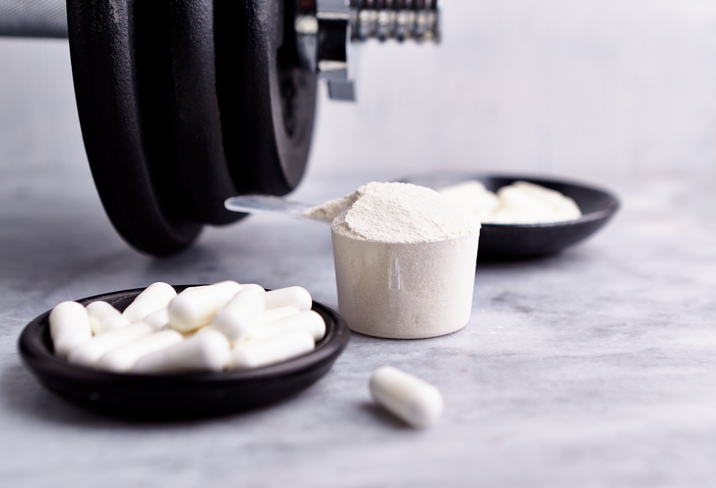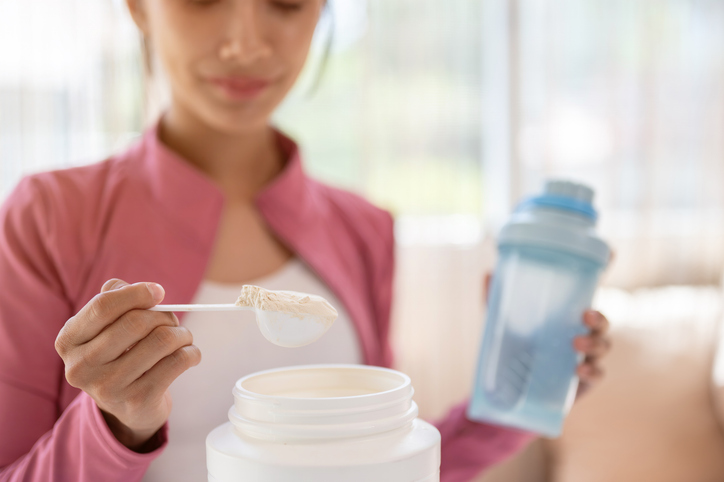It’s no secret that creatine is more popular among men than women, making men more likely to enjoy its benefits, such as increased training performance and increased muscle growth. And if you’re a woman, you may be wondering if creatine supplements will work the same for you and if it poses any risks to your gender.
Fortunately, creatine monohydrate, the most tested and effective form of creatine, is one of the most studied and research-backed supplements on the market, explains Marie Spano, RD, CSCS, CSSDCertified Sports Dietetic Specialist and Major League Consulting Sports Dietitian.
Here we answer whether creatine is safe for women and how to take it for optimal results.
How does creatine work?

Creatine helps provide fuel for high-intensity efforts such as weightlifting and sprinting, and during the first 10 seconds or so of exercise. This type of activity is governed by the phosphagen system, one of three distinct “metabolic pathways” that also includes the glycolytic and oxidative systems.
Each of these energy systems depends on a different fuel source and is emphasized in different situations. By bulking up your body’s creatine stores, you’re supplying your phosphagen system with more of this key fuel source, which can help increase production and delay fatigue during short, intense activity.
Will creatine make women gain weight?
Creatine is an “osmotically active substance,” meaning it causes cells to absorb more water. This is why supplementing with creatine can result in a small but temporary increase in water weight. Although this may be noticeable (and a little disconcerting) when you step on the scale, it probably won’t make it harder to button your pants.
What are the main benefits of taking a creatine supplement?
This is how creatine can help you complement your workouts and get better results.
1. Better training performance
As mentioned above, creatine supplementation can help improve energy production and delay fatigue during high-intensity efforts. This, in turn, can result in increased training performance. According to one Strength and Conditioning Research Journal review, creatine helps lifters perform 14 percent more repetitions at a given weight.
2. Greater muscle growth
By helping you perform more high-quality repetitions, creatine can help you safely increase your training volume, which can have a positive effect on strength and muscle gain.
According to a Journal of the International Society of Sports Nutrition According to one review, heavy lifting combined with creatine supplements can lead to greater increases in muscle mass compared to lifting alone.
Is there any reason why I shouldn’t take a creatine supplement?

“Creatine is generally safe for healthy people,” says Spano. However, always consult with your doctor before taking a new supplement.
How much creatine should women take?
Research suggests that taking five grams of creatine a day is safe and healthy for most people. At that level, it will take about a month of supplementation for enough levels to build up in your cells for you to notice a difference in your workouts.
You can shave up to three weeks off that schedule through a practice called “loading,” which is a short period of taking a higher initial amount of creatine before switching to the five-gram maintenance portion.
When should I take creatine?
Creatine is not like caffeine: its effects are not fast-acting. It takes time for creatine to build up to sufficient levels in your system. As a result, it doesn’t matter when you take creatine each day, as long as you take it.








